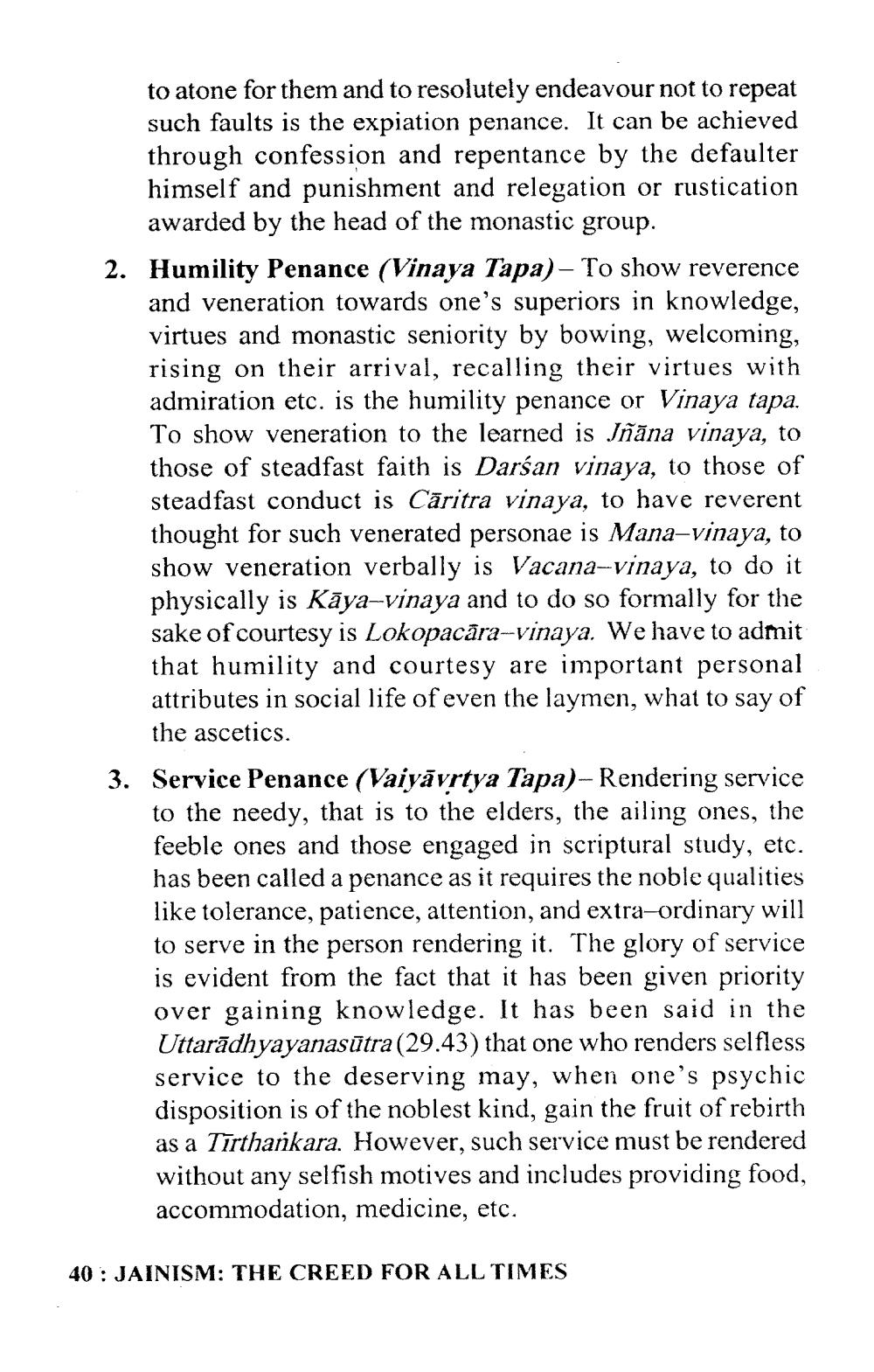________________
to atone for them and to resolutely endeavour not to repeat such faults is the expiation penance. It can be achieved through confession and repentance by the defaulter himself and punishment and relegation or rustication awarded by the head of the monastic group.
2. Humility Penance (Vinaya Tapa) - To show reverence and veneration towards one's superiors in knowledge, virtues and monastic seniority by bowing, welcoming, rising on their arrival, recalling their virtues with admiration etc. is the humility penance or Vinaya tapa. To show veneration to the learned is Jñana vinaya, to those of steadfast faith is Darśan vinaya, to those of steadfast conduct is Caritra vinaya, to have reverent thought for such venerated personae is Mana-vinaya, to show veneration verbally is Vacana-vinaya, to do it physically is Kāya-vinaya and to do so formally for the sake of courtesy is Lokopacāra-vinaya. We have to admit that humility and courtesy are important personal attributes in social life of even the laymen, what to say of the ascetics.
3. Service Penance (Vaiyavṛtya Tapa)- Rendering service to the needy, that is to the elders, the ailing ones, the feeble ones and those engaged in scriptural study, etc. has been called a penance as it requires the noble qualities like tolerance, patience, attention, and extra-ordinary will to serve in the person rendering it. The glory of service is evident from the fact that it has been given priority over gaining knowledge. It has been said in the Uttaradhyayanasūtra (29.43) that one who renders selfless service to the deserving may, when one's psychic disposition is of the noblest kind, gain the fruit of rebirth as a Tīrthankara. However, such service must be rendered without any selfish motives and includes providing food, accommodation, medicine, etc.
40: JAINISM: THE CREED FOR ALL TIMES




